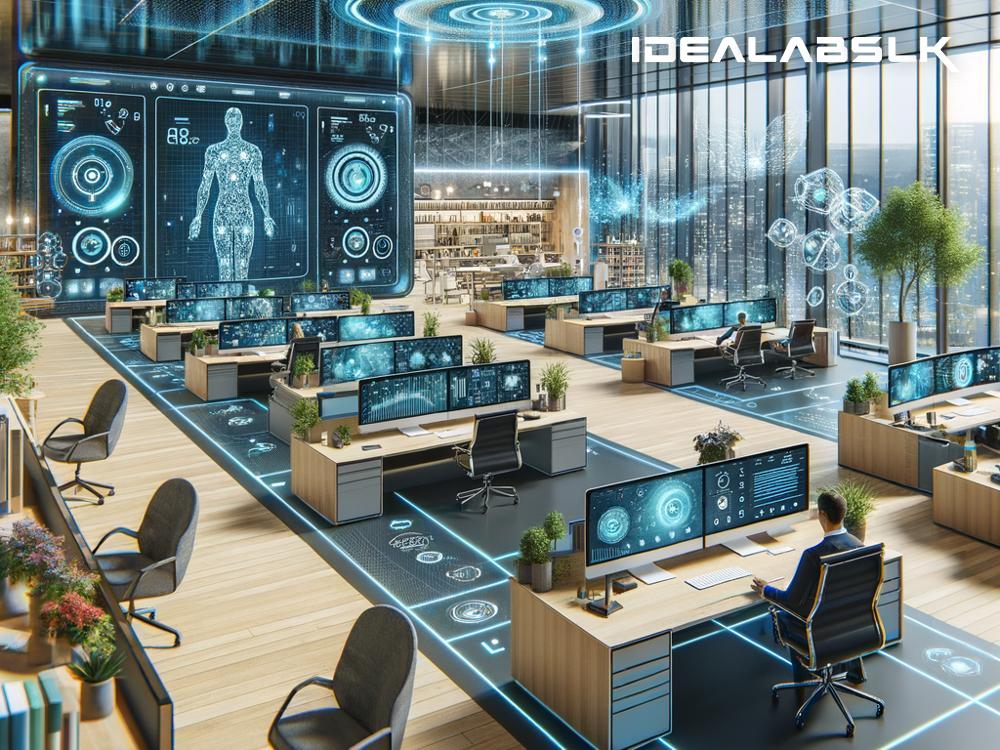As we march further into the 21st century, the concept of office spaces is continuously evolving, especially with the integration of artificial intelligence (AI). By the year 2025, AI tools are anticipated to revolutionize how we interact within our work environments, making them smarter, more efficient, and incredibly adaptive to our needs. Here, we take a closer look at some of the best AI tools set to transform office spaces into smart, productive havens.
AI-Powered Virtual Assistants
Gone are the days of simple voice-activated devices. By 2025, AI-powered virtual assistants will become an integral part of every smart office space. Unlike their predecessors, these assistants will do more than just set reminders or play music on command. They'll be capable of managing schedules, setting up meetings, and even prioritizing emails based on urgency and relevance. Through natural language processing and machine learning, they will understand the context better, making interactions smoother and more intuitive.
Smart Meeting Rooms
Smart meeting rooms, equipped with AI, will redefine collaboration and conferencing. These rooms will automatically adjust lighting and temperature based on the number of attendees, and time of day, and can even suggest optimal seating arrangements for better engagement and interaction. AI will also facilitate seamless video conferencing, with features like real-time language translation, automatic minute-taking, and the ability to highlight action points and decisions, making every meeting more productive.
Enhanced Security Systems
Security in offices will see a significant upgrade, thanks to AI. Facial recognition technology will not only ensure that only authorized personnel can access certain areas, but it'll also remember preferences of individuals, like lighting and workstation settings. Moreover, AI-driven security systems will be able to detect any unusual behavior or unauthorized access attempts in real-time, instantly alerting the security team, thereby ensuring a safer workplace environment.
Energy Management
Smart office spaces in 2025 will be greener and more energy-efficient. AI tools will play a crucial role in managing and optimizing energy usage throughout the building. They can analyze data from various sources, like weather forecasts, to adjust heating, ventilation, air conditioning systems (HVAC), and lighting, ensuring minimal waste. Furthermore, these systems can learn from usage patterns to optimize energy consumption, even predicting future needs to adjust settings proactively.
AI-Enhanced Project Management
Project management tools powered by AI will help in streamlining workflows and ensuring projects are completed on time. These tools can predict project timelines, identify potential bottlenecks before they become issues, and suggest the best team composition for efficiency and effectiveness. Also, they can automatically allocate tasks based on team members' workload and expertise, ensuring an even distribution of work and preventing burnout.
Intelligent Office Design
AI will also influence the physical layout of office spaces. Through the analysis of employee interaction data and space utilization, AI tools can suggest office designs that foster collaboration, creativity, and productivity. These tools can simulate different layouts, showing how changes can affect workflows and employee satisfaction. The result is a workspace that is not only aesthetically pleasing but also functionally optimized for the tasks at hand.
Robotic Process Automation (RPA)
RPA bots will take over repetitive and time-consuming tasks such as data entry, invoice processing, and HR onboarding processes. This not only speeds up operations but also allows employees to focus on more complex and rewarding tasks. The integration of AI makes these bots smarter, enabling them to handle exceptions and make decisions based on predefined criteria, further reducing the need for human intervention.
Continuous Learning and Development
AI tools will also facilitate continuous learning and professional development in the workplace. Based on job roles and individual performance assessments, AI can curate personalized learning paths for employees, suggesting courses and materials that are most relevant to their career progression. This ensures that the workforce remains skilled and knowledgeable, ready to tackle the challenges of the future.
In conclusion, the smart office spaces of 2025 will be a far cry from the offices we know today. With the help of AI, these futuristic workplaces will not only boost productivity and efficiency but also ensure a more secure, energy-efficient, and enjoyable working environment for everyone. As we look forward to this exciting future, it's clear that AI will play a pivotal role in shaping the way we work, collaborate, and innovate in our professional spaces.

